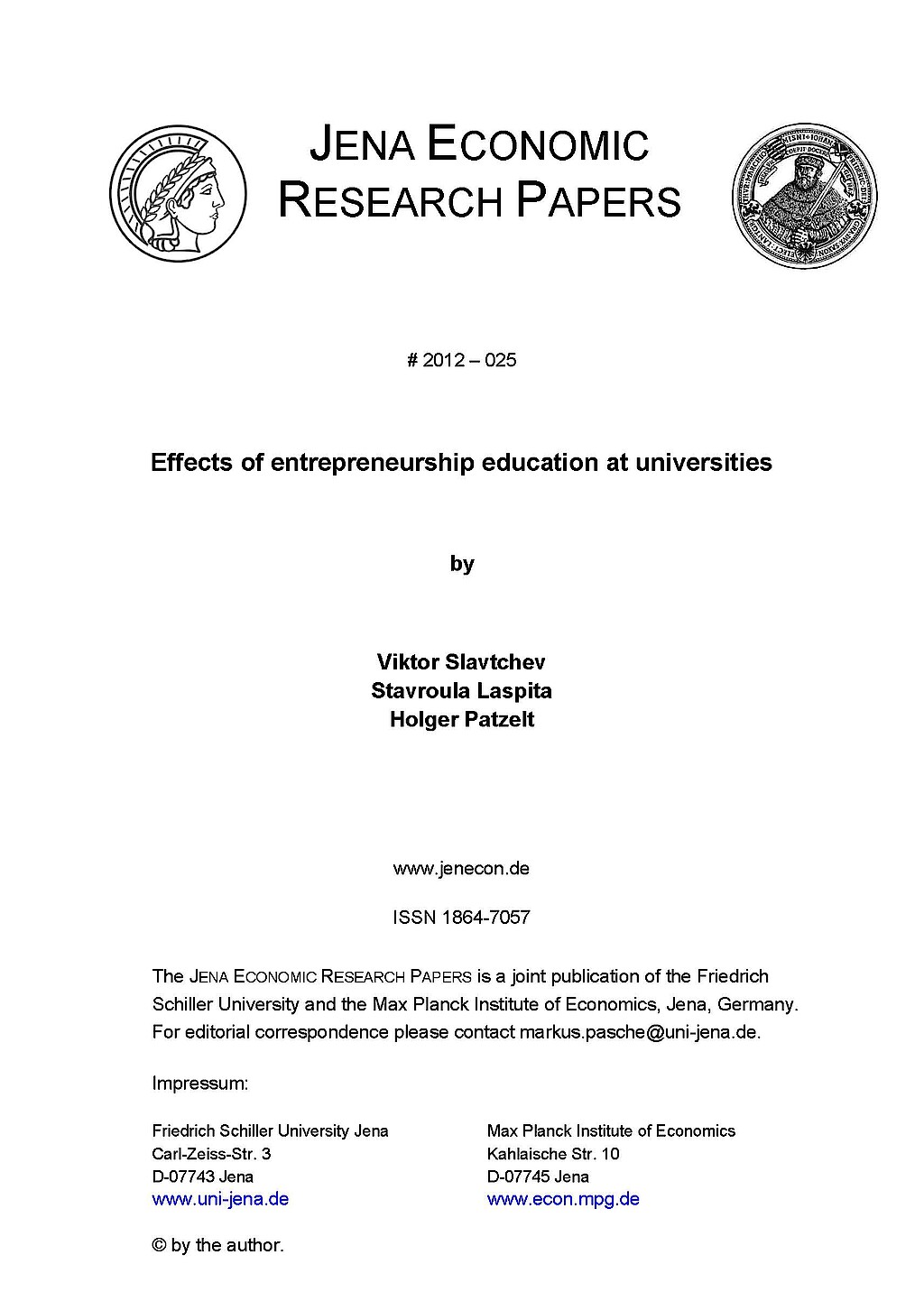
Effects of Entrepreneurship Education at Universities
This study analyzes the impact of entrepreneurship education at universities on the intentions of students to become entrepreneurs or self-employed in the short-term (immediately after graduation) and in the long-term (five years after graduation). A difference-in-differences approach is applied that relates changes in entrepreneurial intentions to changes in the attendance of entrepreneurship classes in the same period. To account for a potential bias due to self-selection into entrepreneurship classes, only individuals having no prior entrepreneurial intentions are analyzed. Our results indicate a stimulating effect of entrepreneurship education on students’ intentions to become entrepreneurs or self-employed in the long-term but a discouraging effect on their intentions in the short-term. These results support the conjecture that entrepreneurship education provides more realistic perspectives on what it takes to be an entrepreneur, resulting in ‘sorting’. Overall, the results indicate that entrepreneurship education may improve the quality of labor market matches, the allocation of resources and talent, and increase social welfare. Not distinguishing between short- and long-term intentions may lead to misleading conclusions regarding the economic and social impact of entrepreneurship education.




